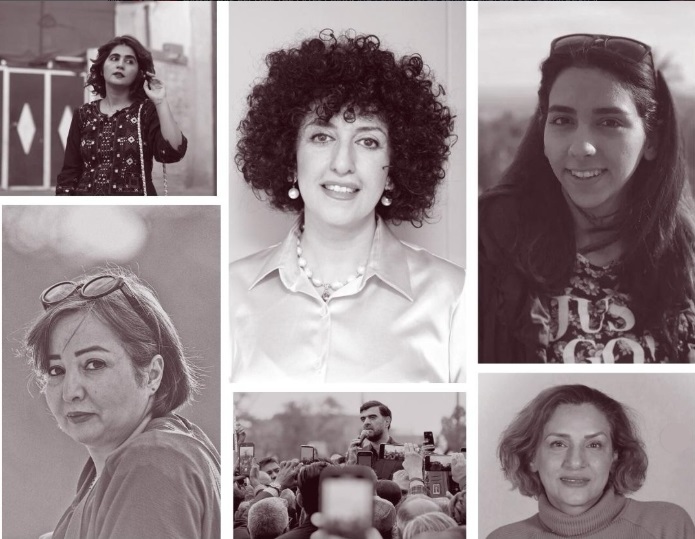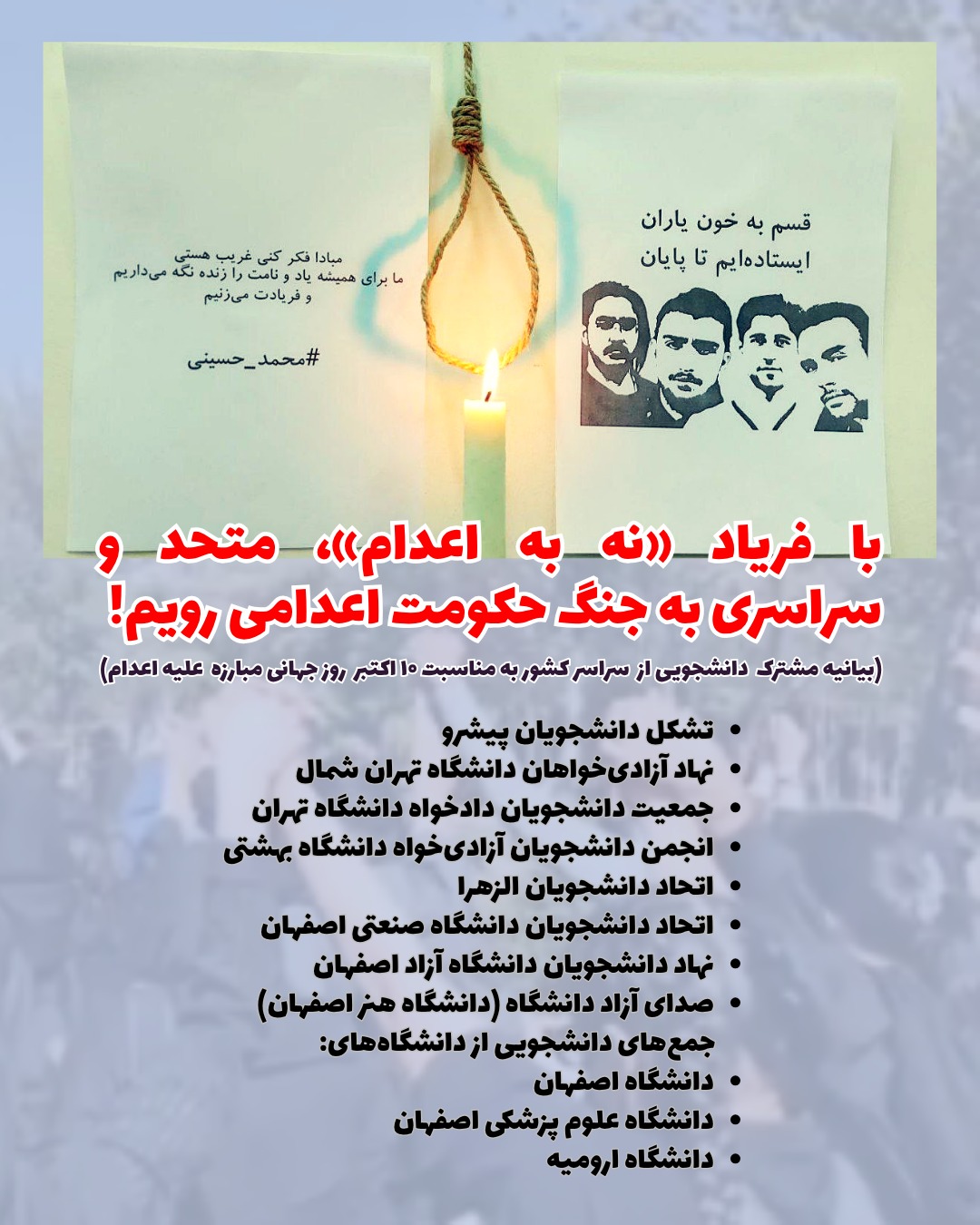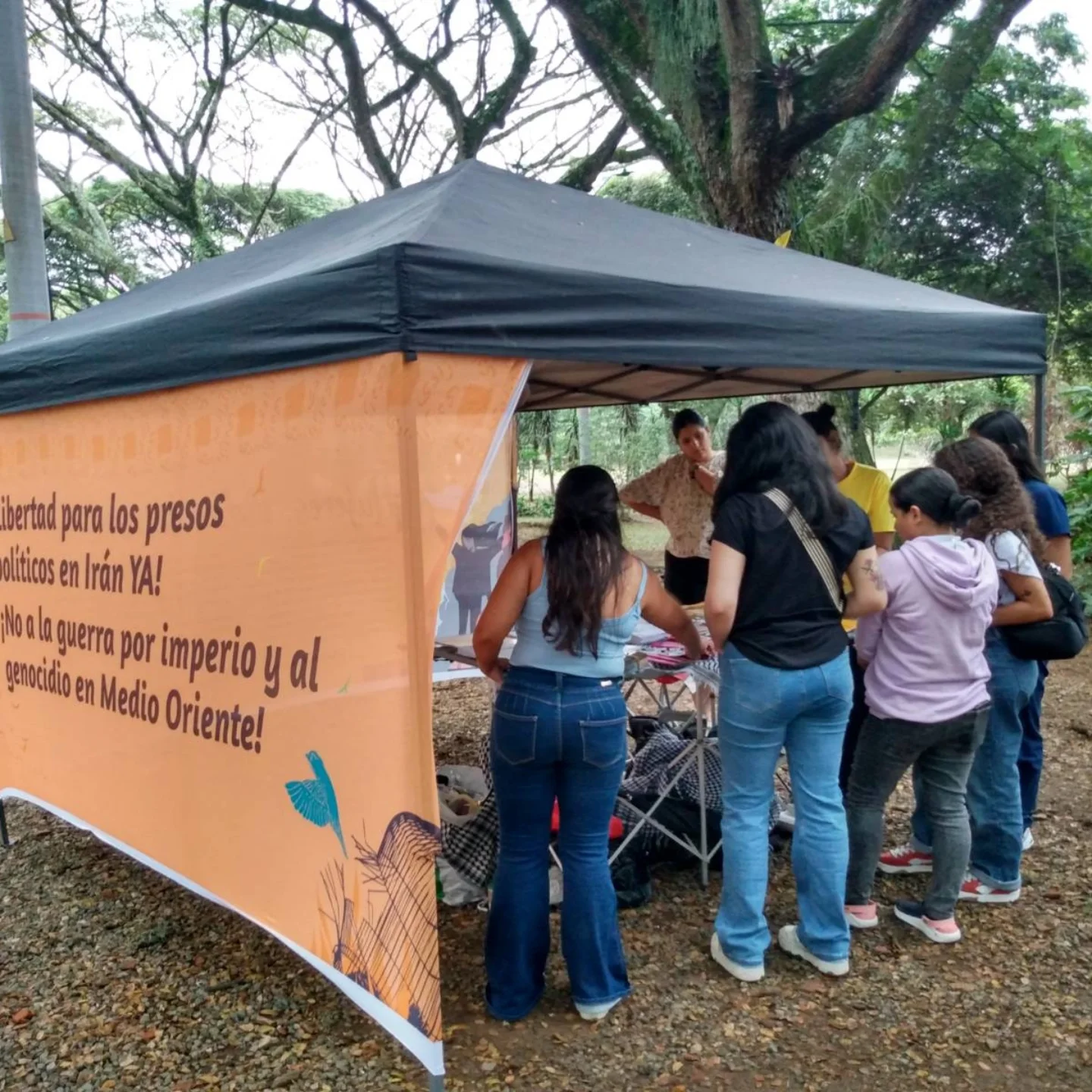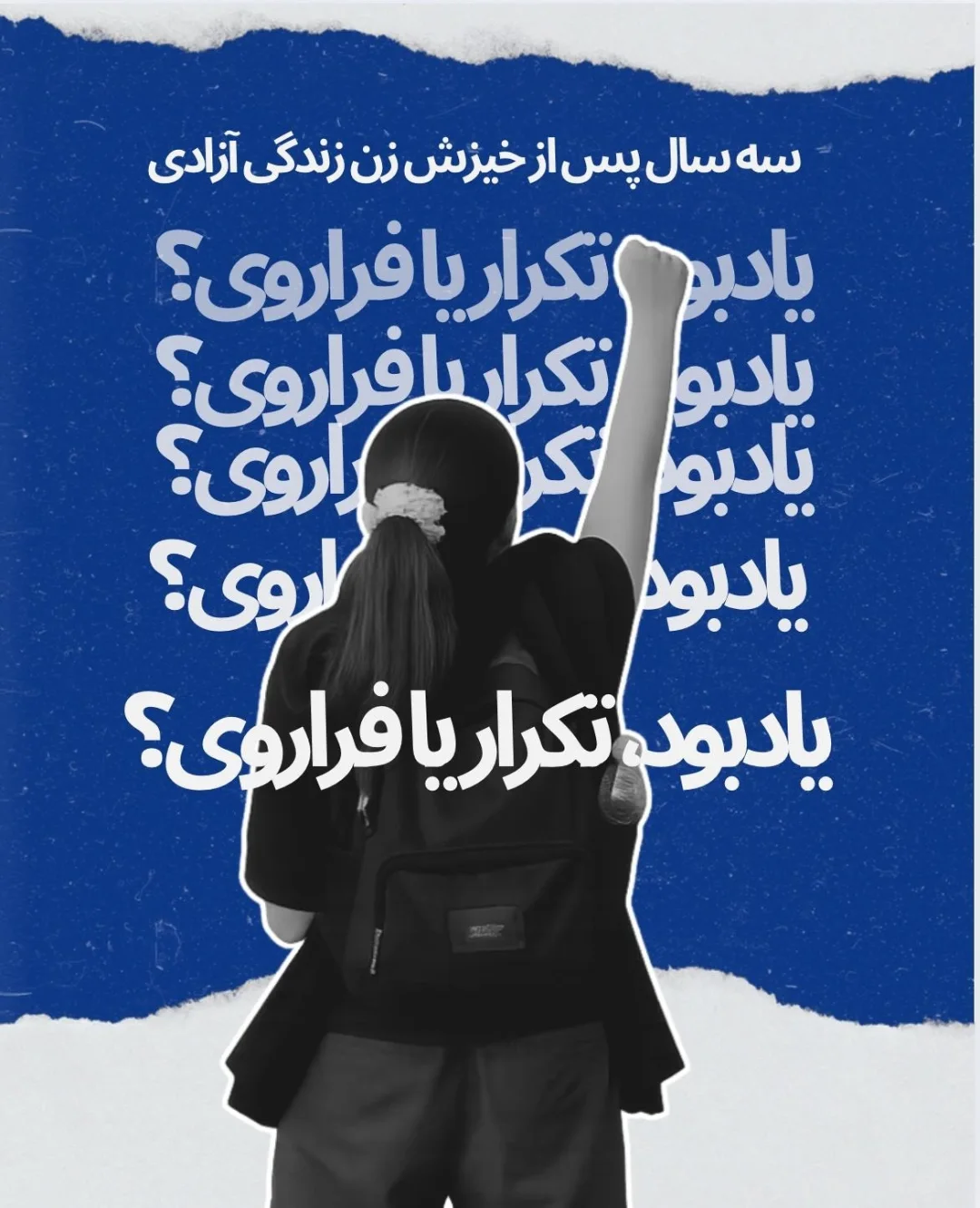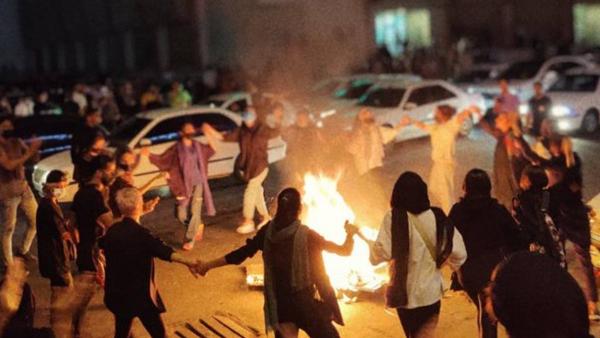Recent News from the Global Movement
Introductory Remarks to January 28 program by Dolly Veale
Dolly Veale, a co-initiator of the International Emergency Campaign and a contributor to revcom.us, welcomed the in-person and online attendees of the January 28 program at UUSF with substantive and thought-provoking comments. She started by dedicating the program to the late Carol Downer, who co-initiated the IEC together with her in 2020. [Read more about Carol's life and tributes to her after her death one year ago]
Welcome all and thank you to the UUSF for hosting this timely event.
Carol Downer was a witness to the 1979 revolution in Iran that overthrew the Shah but was hijacked by the misogynistic Islamic Sharia law, capitalist theocrats. She was best known as a fierce lifelong advocate for women’s liberation, especially for abortion freedom. She was also a supporter of the revcoms, including the work of revolutionary leader Bob Avakian. I will speak from my own viewpoint as a revolutionary communist who united with my late friend Carol and many others from different perspectives to stand people in Iran who were and are standing up and fighting for a better world.
Because we do live in extraordinary times in world history, I feel a responsibility to speak frankly tonight and not hold back. The film tonight is very powerful capturing the raw fury women feel about the world and the need to end gender oppression. But as much as I admire the courageous people in repeated uprisings in Iran, there is a question that asks itself – uprisings are not revolutions – so what is the way out. To be free or just to be – that is the question. We can here agree that this is unacceptable but why is it accepted? Because too many people have ruled real communist revolution – in particular the work of the new communism – off the map. Are we condemned to just rise up repeatedly or are we reaching for emancipation?
Surrounding the fierce uprising against women’s oppression in Iran that gained a lot of support in the world – not enough in this country frankly – was the situation described in a recent book titled “For the Sun After Long Nights: The Story of Iran’s Women-Led Uprising.” To cite one visceral passage:
…from 2021 to 2023 a woman was killed by one of the men in her family every four days in Iran, forty-three were shot with hunting rifles, Colts, even Kalashnikovs. Forty were stabbed to death. Thirty-five were suffocated by hand or with scarves and bedding. Six were burned to death as the men poured gasoline directly onto their flesh. Four were murdered by multiple hammer blows. Thirty more women were murdered in other unusual, violent ways such as mutilated or thrown from the roof of a building.
In April 2025, Ms. Magazine had an online article titled “Thousands of U.S. Women Are Killed Each Year. Where’s the Outrage?” It said that:
The U.N. issues annual femicide reports [in 2025]…finding a woman is murdered by her partner or family member every 10 minutes….In 2020, over 2,000 American women were murdered by men…
The world today is saturated with the most extreme misogyny and forms of patriarchy from top to bottom – from the highest offices – whether in Iran or in the U.S. or China -- down to the most private spaces between people. It is one where an ICE Gestapo can scream out “fucking bitch” after he makes the snuff film of himself shooting Renee Good in the face. Yes, the patriarchy predated capitalism but given where we are in human history of the capitalist imperialist world woven together, the liberation of women cannot happen without the emancipation of all humanity and vice versa. That is, what is required is a total revolution – which is the communist revolution based on the most far sighted and scientific understanding that has been developed by the revolutionary leader Bob Avakian whose work you can find on the website I contribute to, revcom.us
What is the real problem and real solution to 1000s of years of patriarchy?
Until Mao died in 1976, China was a revolutionary society making inspiring changes towards eliminating oppression and inequality in society overall including the role of women as revolutionaries. It was said during that time that “women hold up half the sky.” Despite secondary weaknesses, it was an unprecedented breakthrough in human history towards a liberatory society.
You can find some of this history on the website of the Communist Party of Iran, Marxist-Leninist-Maoist (cpimlm.org). But more, they have also translated a lot of Bob Avakian’s work into Farsi that is on their website. They have great clarity about the new breakthroughs he has made in the science of communism – summing up the first wave that ended with the capitalist restoration in the Soviet Union in 1956 and then in China in 1976. These revolutions were defeated and Avakian has not only gone to work on why as to the major achievements but also the secondary errors, he has developed the theoretical tools for how we can actually get beyond the capitalist imperialist nightmare of our world today and get to a world based on “from each according to their ability, from each according to their need”, a freely associating community of human beings that is possible in our world. I urge everyone in earshot to read the article by C. Clark Kissinger at the website revcom.us titled “85 Down, I still have 15 to go…but Trump Has to Go Now.”
The film we will watch tonight brings me to this comment from a booklet titled “Break all the Chains. Bob Avakian on the Emancipation of Women and the Communist Revolution.” It is a work that addresses the foundation and universal horror of class societies and how women and human society from bondage of a world divided in masters and slaves. I want to just read it and direct you to do your own homework by looking into the new communism at revcom.us and the book by that name authored by Avakian.
Others tonight will speak more to the recent uprising and brutal crackdown in Iran, including mass executions on the streets that threaten the lives of all the political prisoners. To the people who were inspired by the uprisings in Iran and to the brave people in the uprisings in Iran, as well as in the U.S., this is what it will take to get free – of ALL oppression and exploitation. This is food for thought and engagement if you are really interested in woman, life, freedom as a clarion call to not stay safe, but get free as we watch this documentary “Inside the Iranian Uprising”.
You cannot break all the chains, except one. You cannot say you want to be free of exploitation and oppression, except you want to keep the oppression of women by men. You can’t say you want to liberate humanity yet keep one half of the people enslaved to the other half. The oppression of women is completely bound up with the division of society into masters and slaves, exploiters and exploited, and the ending of all such conditions is impossible without the complete liberation of women. All this is why women have a tremendous role to play not only in making revolution but in making sure there is all-the-way revolution. The fury of women can and must be fully unleashed as a mighty force for proletarian revolution.
US Veterans: "We Stand With the People of Iran"
We veterans of the U.S. Imperialist war machine stand with the Iranian people as they rise up in the face of 2 oppressors-- the United States/Israel alliance and their own theocratic regime. At this moment the U.S. and Israel are on a rampage. The U.S. is waging illegal war in Latin America, declaring itself the ruler of Gaza and threatening to bomb the Iranian people in the name of "the Iranian people". This is the same regime that is killing people in American cities in the name of the "American people". Israel has boasted of intervention in the Iranian protests-- acts of war against Iran-- as well as attacks on Lebanon, Palestine and Syria.
Let's be clear, the current economic crisis in Iran, as in Venezuela and elsewhere is "Made in the USA"-- through especially sanctions (economic warfare) but also through the normal workings of this capitalist-imperialist system that has been preying on the region for over a century. And now a U.S. Carrier battle group is on its way to threaten Iran. This must be opposed!
We join with the International Emergency Campaign to Free Iran’s Political Prisoners NOW and the Unitarian Universalists of San Francisco Human Rights Working Group in inviting all to "STAND WITH IRAN’S REBELS & AGAINST U.S.-ISRAEL WAR THREATS/MOVES ON IRAN! FREE IRAN'S POLITICAL PRISONERS NOW!" on January 28.
The Iranian regime for its part has expanded its use of the death penalty to even more unconscionable levels over the past year. While most independent information from Iran is blocked since the recent protests, credible reports of large scale state violence have emerged. In basic terms, no government has the right to repress the masses when they protest against clear injustice.
We stand with the people of Iran against any and all aggression by the U.S. and its Zionist and other allies. We have learned some of the horrors U.S. imperialism inflicts on the people of the world through being part of its war machine. We have come to realize that people everywhere have basic rights as people-- and on this basis we stand with people anywhere who are denied those rights. The question is sharply posed-- will the people of the world be able to break out of these horrors-- or will they be forever at the mercy of oppressive ruling classes.
In Struggle,
Pete Schoonmaker, USN 1977-84, member Veterans For Peace Daniel Ellsberg Chapter
Martin Kunz, USN 1970-76, member Veterans For Peace Daniel Ellsberg Chapter
Note of Solidarity / Nota de Solidaridad - A Quemar la Jaula (Colombia)
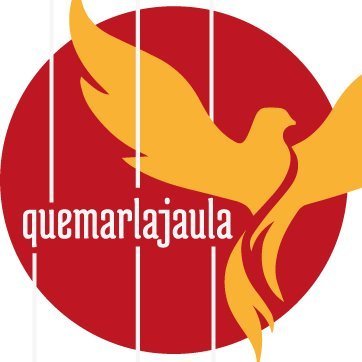
IEC received this Nota de Solidaridad in Spanish from A Quemar la Jaula (Colombia) to be read at the January 28, 2026 program by IEC and UUSF. It is translated to English by IEC volunteers. Scroll down to read the original letter in Spanish. In addition to celebrating this internationalist message, we urge readers to take note of the valuable insights shared.
From the A Quemar la Jaula [Burn the Cage] Colombia campaign, we send a warm greeting to the political prisoners in the jails of Iran and to all the fighters who, even in the face of serious risks, threats and repression, have not given in to intimidation and have remained firm in the struggle.
The Tuesday No to Executions strike, now completing its second year, is an inspiring example for the world. The defiant and courageous attitude of Sepideh Gholian, Narges Mohammadi and other attendees of the funeral in Mashhad demonstrate the stand that is so necessary in these current times. Their struggle awakes in us an enormous appreciation and respect; it is a model of action that must be known and supported in all corners of the planet.
We also wish to greet this program and all the initiatives and efforts to focus the eyes of the world on the courageous struggles of the people in the prisons and streets of Iran.
There is still very much to do to get a significant number of people in many parts of the planet to recognize that the struggle of the Iranian people, and of its political prisoners, is our struggle, and that the atrocities which the reactionary Islamic Republic of Iran commits against the political prisoners and everyone who dissents, protests, or whom the regime considers suspicious, should be decisively opposed.
The recent uprisings in Iran, expressions of the fury of millions of Iranians towards that reactionary regime, and the bloody response of the Islamic Republic, caught the attention of many people worldwide, and this represents a key opportunity to build the international campaign for the life and liberty of the political prisoners in Iran with greater strength, breadth and forcefulness and to put before many, many more people its key points of orientation that draw a dividing line against joining one bloc or the other of oppressive forces: We demand to the Islamic Republic of Iran: FREE THE POLITICAL PRISONERS NOW! We say to the U.S.: No threats or war moves against Iran, lift the sanctions!
There are several obstacles in people’s thinking that have stood in the way of achieving this objective. In our work to build the campaign in Colombia, we continue to struggle to overcome some of these, such as the idea that “what happens in Iran is their problem” and “we should only concern ourselves with what happens in Colombia”. Another obstacle has been the idea, especially among many people on the “left”, that “the enemy of my enemy is my friend,” which makes them consider Iran “anti-imperialist” because it has contradictions with the U.S. and Israel, and therefore poses as a defender of the struggle of the Palestinian people.
We have had some valuable experiences working to connect the struggle of the Palestinian people with that of the Iranian people and calling on people to not side with any oppressor, and we continue working to broaden this effort and win over many people to take up this fight as their own. This should involve more people, not just in Colombia or other countries where the campaign has arrived so far, but we should even make efforts to expand it to new latitudes. Actions like the days of global action, unified under the central slogans of this campaign, could play a very important role in attaining this objective, and we are evaluating other forms for doing so. As part of that, we are planning to attend several international events like the International Antifascist Conference which will take place in Porto Alegre, Brazil, from March 26-29, with the aim of making this campaign known, struggling for the correctness of its main points of unity and inviting the attendees from different countries to join the existing campaigns or even be a bridge to bring them to new places.
Amid the recent uprising in Iran, some have emphasized that in spite of the brutality with which the Islamic Republic repressed the demonstrators, the solidarity and support from the world was absolutely insufficient and they felt “alone” in this struggle. This must change. The Iranian people and political prisoners are not alone, the people of Iran are our people, their struggle is our struggle, and it is our duty to work so that their struggle not only invokes the world’s solidarity but that it serves as an inspiration to advance in the struggle to put an end to all the oppression and exploitation that weighs on humanity.
****
Desde la campaña A Quemar la Jaula (Colombia) enviamos un caluroso saludo a los presos políticos en las cárceles de Irán y a todos los luchadores que, aún enfrentando serios riesgos, amenazas y represión, no se han dejado amedrentar y se mantienen firmes en la lucha. La huelga de los martes de no a las ejecuciones, que ya cumple dos años, es un inspirador ejemplo para el mundo. Y la actitud desafiante y valiente de Sepideh Gholian, Narges Mohamadi y otros asistentes al funeral de Mashhad son una muestra de la actitud tan necesaria en los tiempos actuales. Su lucha nos produce un enorme aprecio y respeto y es un actuar ejemplar que requiere ser conocido y apoyado en todos los rincones del planeta. Igualmente queremos saludar este evento y todas las iniciativas y esfuerzos por poner los ojos del mundo en las valientes luchas del pueblo de Irán en las cárceles y las calles.
Aún queda muchísimo trabajo para lograr que un número significativo de personas en muchas partes del planeta reconozcan que la lucha del pueblo iraní, y de sus presos políticos, es nuestra lucha, y que las atrocidades que la reaccionaria República Islámica de Irán comete contra los presos políticos y todo aquel que disiente, protesta o se considera sospechoso por el régimen, deben ser opuestas con la mayor contundencia.
Los recientes levantamientos en Irán, expresiones de la furia que millones de iraníes sienten hacia ese reaccionario régimen y la sanguinaria respuesta de la República Islámica llamaron la atención de muchas personas a nivel global, y esto representa una oportunidad clave para impulsar con más fuerza, amplitud y contundencia la campaña internacional por la libertad y la vida de los presos políticos en Irán y por llevar a muchísimas más personas sus puntos de orientación claves que hacen un deslinde con ponerse del lado de uno u otro bando de fuerzas opresivas: ¡Exigimos a la República Islámica de Irán: LIBERTAD PARA LOS PRESOS POLÍTICOS YA! Decimos a Estados Unidos:
¡No a las amenazas o movidas de guerra contra Irán, quiten las sanciones contra Irán!
Hay varios obstáculos en la forma de pensar que se han interpuesto en el camino de lograr avanzar en ese objetivo. En el trabajo por impulsar la campaña en Colombia, seguimos batallando por vencer algunos de ellos como la idea de que “lo que pasa en Irán es un
problema de allá” y que “debemos preocuparnos solamente por lo que pasa en Colombia”. También ha sido un obstáculo la idea, especialmente entre mucha gente de la “izquierda” de que “el enemigo de mi enemigo es mi amigo”, lo que lleva a que consideren a Irán como “antiimperialista” porque tiene contradicciones con Estados Unidos y con Israel, y que por tal motivo, posa de ser un defensor de la lucha del pueblo palestino.
Hemos tenido algunas experiencias valiosas en trabajar por conectar la lucha del pueblo palestino con la del pueblo iraní y llamar a la gente a no tomar partido por ningún opresor, y seguimos trabajando para que este trabajo se amplíe y sume a muchas personas de manera que tomen esta lucha como suya. Esto debe comprender a más gente, no solo en Colombia o los demás países donde la campaña ha llegado hasta ahora, sino incluso esforzarnos por expandirlo a nuevas latitudes. Acciones como los días de acción internacional, unidos bajo las consignas centrales de esta campaña, pueden cumplir un papel muy importante en la consecución de este objetivo, y estamos evaluando otras formas de hacerlo. Como parte de ello, planeamos asistir a algunos eventos internacionales como la Conferencia Internacional Antifascista que se realizará en Porto Alegre (Brasil) del 26 al 29 de marzo, con el fin de dar a conocer esta campaña, dar lucha en torno a la justeza de sus puntos de unidad centrales e invitar a los asistentes de distintos países a ser parte de las campañas que existen o incluso ser un puente para llevarlas a nuevos lugares.
En medio del reciente levantamiento en Irán, algunos subrayaron que pese a la represiva brutalidad con la que la República Islámica reprimió a los manifestantes, la solidaridad y el apoyo del mundo fue absolutamente insuficiente y se sintieron “solos” en esta lucha. Esto debe cambiar. El pueblo iraní, y sus presos políticos, no están solos, la gente de Irán es nuestra gente, su lucha es nuestra lucha, y es nuestro deber trabajar porque su lucha no solo reciba la solidaridad del mundo, sino que, sea una inspiración para avanzar en la lucha por poner fin a toda la opresión y explotación que pesa sobre la humanidad.
Revolution Books Berkeley: "Down with the Islamic Republic of Iran! No U.S./Israeli Attack on Iran!"
Revolution Books Berkeley brought a book table and addressed the January 28 program with this statement:
Right now the US has the aircraft carrier USS Abraham Lincoln and three accompanying warships are in the Middle East within “strike range” of Iran.
We stand with the people in Iran against these threats, and salute the courageous political prisoners and the people on the streets who have stood up against the Islamic Republic of Iran.
To understand what is going on there and in the world as a whole, we need to look beneath the surface of the intense and cascading events at the underlying causes for why the world is this way. We invite you to check out our books about Iran’s history, the US coup and the US attacks on the country, as well as novels and poetry. These books expose the history and the lives of the people and expose the lies we are being told by our government. We have brought the works of the Communist Party of Iran (Marxist Leninist Maoist), which has taken up the new communism developed by Bob Avakian and works by Avakian and the New Communism.
We support the courageous rebellion that started Dec 28th and the demands “Down with the Dictator,” “Down with [Ayatollah] Khamenei,” “Freedom, freedom, freedom,” which have set an example for the world. We condemn the IRI for its mass murder, arrests and terror, which justifies this mass murder lying that the protesters are “terrorists,” inspired or directed by the U.S. or Israel. This is an echo of the Trump fascists lies that the two murdered protesters against ICE were “domestic terrorists.”
Donald Trump has threatened to intervene in Iran, if protesters are killed saying, “We are locked and loaded and ready to go.”
We say NO! the US is not going to help the people, it aims to solidify its domination of the Middle East.
We in the U.S. have a special responsibility to stay alert to oppose Trump's fascist aggression on Iran and the world. A war started by the US would not only be opposed to the interests of humanity, it poses the real threat of human extinction. We strongly support the struggle of the people of Iran and the Communist Party of Iran (MLM).
The revcoms say:
Down with the Islamic Republic of Iran!
No U.S./Israeli Attack on Iran!
In the name of humanity, we refuse to accept a fascist America!
This whole system is rotten and illegitimate! We need and we demand: a whole new way to live, a fundamentally different system!
Zanan Group
This statement from Zanan Group, an independent Iranian women's organization, Northern California chapter, was read at the January 28 program.
Our hearts go out to everyone who has suffered losses in the recent uprising in Iran! With communications and Internet shut down, the number of arrests and killings are not known but estimated to be in thousands where even one is too many!
We support people's struggles for their human rights: the right to speak, to protest, to organize, and to imagine a free future. And, we stand in unwavering solidarity with all political prisoners in Iran; writers, activists, artists, students, workers, women, and dissenters who are imprisoned for exercising their most basic human rights.
Their imprisonment is not a crime; it is an indictment of a system that relies on repression, fear, and silence to sustain itself. The voices behind prison walls carry the truth of a society demanding dignity, justice, and equality. No amount of intimidation can erase their courage or the legitimacy of their struggle.
We call for the immediate and unconditional release of all political prisoners and those who have been arrested in recent uprising in Iran, an end to torture, solitary confinement, and unfair trials, and accountability for those responsible for systemic human rights violations. We affirm that freedom of expression, bodily autonomy, and political participation are not privileges granted by power, but inalienable rights.
To those imprisoned: you are not forgotten. Your resistance resonates far beyond prison walls. We carry your names, your stories, and your demands, and we will continue to speak where you are silenced until freedom, justice, and life prevail.
Zanan Group in Northern California



